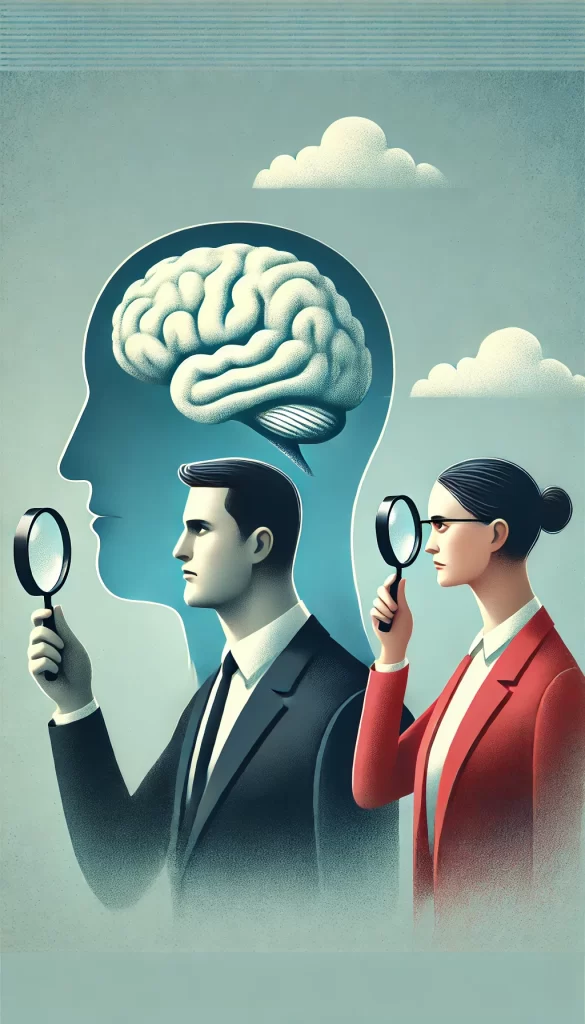What Causes Mental Illness?
What is Mental Illness?
Mental illness is defined as health conditions that involve significant changes in thinking, emotion, and behavior, leading to distress or problems functioning in social, work, or family activities. It is a broad term encompassing a wide range of mental health disorders that can affect mood, behavior, and thinking.
The prevalence of mental health disorders is high. In recent years, statistics have shown that a significant percentage of both adults and youth have experienced mental illness. This demonstrates the urgent need for treatment and support for those affected.
At Sly Academy, our approach to mental health care focuses on individualized treatment that addresses symptoms and uncovers underlying issues.
Causes of Mental Illness
Mental illnesses often have complex origins and cannot be traced back to a single cause. Instead, they emerge from an intricate mix of factors, including:
- Biological Factors: Genes and neurochemistry can influence susceptibility to mental disorders. An imbalance in brain chemicals (neurotransmitters) can contribute to mental health conditions such as depression, anxiety, and bipolar disorder. Hormonal imbalances, prenatal exposures, and brain injuries can also increase risk.
- Psychological Factors: Personal coping mechanisms, early life experiences, stress management skills, and overall mental resilience shape an individual’s vulnerability to mental illness.
- Environmental Factors: Trauma, abuse, chronic stress, and social influences like cultural attitudes toward mental health, peer pressure, and economic challenges play key roles.
Biopsychosocial Factors Explained
Mental illnesses are typically shaped by what are known as biopsychosocial factors—a blend of biological, psychological, and social influences.
Biological Factors
- Genetics and Heredity: Certain genes can increase your risk of developing a mental health disorder. If you have a family member with mental illness, your likelihood of experiencing a similar condition may be higher.
- Brain Chemistry: Abnormalities in brain structure, neurochemicals, and function contribute to mental health conditions.
- Hormonal Changes: Hormonal imbalances, particularly during key life stages (like adolescence and pregnancy), can impact mental health.
Psychological Factors
- Personality Traits and Coping Skills: High levels of perfectionism, low self-esteem, or maladaptive coping strategies can exacerbate mental health conditions.
- Early Trauma: Childhood neglect, abuse, or exposure to violence can lead to mental health challenges later in life.
Environmental and Social Factors
- Trauma and Stress: Major life events, ongoing societal pressures, and work-life imbalances can contribute to mental health problems.
- Cultural and Societal Influences: Mental health stigma, cultural norms, and discrimination can hinder access to appropriate treatment and worsen symptoms.
Types of Mental Illnesses
Mental illnesses are grouped into several broad categories:
- Anxiety Disorders: Characterized by excessive worry and fear, these include generalized anxiety disorder, panic disorder, and phobias.
- Mood Disorders: Disorders like depression and bipolar disorder cause significant fluctuations in mood.
- Personality Disorders: These disorders involve enduring patterns of behavior that diverge from social expectations (e.g., borderline personality disorder).
- Psychotic Disorders: Conditions such as schizophrenia involve distorted thinking, hallucinations, and delusions.
- Trauma-Related Disorders: PTSD and related conditions stem from exposure to traumatic events.
- Neurodevelopmental Disorders: Disorders like ADHD and autism spectrum disorder affect development.
- Impulse Control Disorders: These involve difficulty controlling impulses and behavior (e.g., intermittent explosive disorder).
- Substance-Related Disorders: Addiction disorders involve problematic substance use.
Symptoms and Warning Signs of Mental Illness
Early detection is crucial for effective intervention. Common signs include:
- Sudden mood or behavioral changes
- Withdrawal from social interactions
- Difficulty concentrating
- Changes in appetite or sleep
- Chronic feelings of worry, fear, or sadness
- Physical symptoms without clear causes (e.g., headaches, digestive issues)
- Substance misuse
- Suicidal ideation
If you or someone you know is experiencing these symptoms, seek professional help immediately.
Diagnosing and Treating Mental Illness
Diagnosis involves a combination of medical history reviews, psychological assessments, and, when necessary, physical exams. Treatment typically includes:
- Therapy: Individual or group therapy addresses symptoms, teaches coping skills, and promotes healing.
- Medications: Antidepressants, antipsychotics, and other drugs may be prescribed to manage symptoms.
- Lifestyle Changes: Healthy eating, exercise, sleep, and stress management improve overall well-being.
Strategies for Preventing Mental Illness
- Stress Management: Incorporate techniques like meditation and mindfulness.
- Regular Exercise: Physical activity enhances mental and physical health.
- Adequate Sleep: Develop a consistent sleep routine.
- Healthy Diet: Consume nutrient-rich foods.
- Social Support: Build and maintain healthy relationships.
Reducing Stigma and Promoting Mental Health Awareness
Promoting mental health awareness involves education, support, and open conversations. By fostering an inclusive, stigma-free environment, individuals can access care and find healing.







